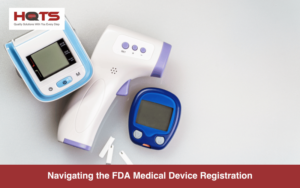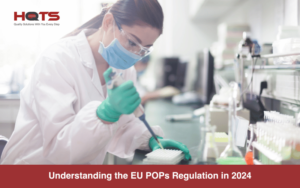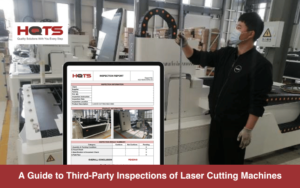Food safety standards have always been extremely important. But since the COVID- pandemic, more scrutiny has been placed on the food industry. Fortunately, when it comes to food trading, good practices can ensure quality throughout the supply chain. These practices are known as Good Hygiene Practices (GHP) and Good Manufacturing Practices (GMP) in the food industry.
Here’s a guide to key things you need to know with regard to hygiene and manufacturing practices, namely GHP and GMP in the food industry context. These practices will help you deliver food products smoothly and keep your business as efficient and safe as possible during these unpredictable times.
What Are the Good Hygiene Practices (GHP) in the Food Industry?
It’s important to work towards promoting good hygiene management in your food supply chain. To do this, you should be auditing your supply chain processes. Good sanitary and food handling measures go without saying. But what is regularly forgotten is that they often can be improved in your production line, as it is a continuous process.
GHP stands for Good Hygiene Practice, and is a key step in food chain hygiene management within the whole food supply chain and ensuring the food is safe and suitable for consumption. It touches on multiple aspects of the food industry, including the food supply chain, sanitation facilities, workers’ hygiene practices, pest control, and preventing physical and chemical pollutants. It is often a prerequisite of other food safety management initiatives such as HACCP, ISO 2200, GAP, and more.
GHP compliance covers the minimum hygiene and sanitary practices. It highlights areas of concern and potential pitfalls to improving your food safety standards. The auditing will check your facilities, equipment, and workspaces to ascertain what needs to improve and potential risks.
It will assess and ensure the food being processed is suitable for human consumption and is the bare minimum needed to comply with regulations in the industry for hotels and restaurants. Food contamination and disease should not be taken lightly, and GHP compliance will aid in that consideration.
What Is the Purpose of GHP in Food Safety?
The overall objective is to ensure that the food is safe for human consumption, by ensuring compliance with the fundamental hygiene and sanitary practices.
The purpose of GHP is to:
- Prevent illness/injury caused by food consumption.
- Assure the food is suitable for human consumption through guidance on its principles.
- Increase the knowledge of food safety within the whole food supply chain by providing health education programs.
The overall goal of GMP practices in the food industry is to reduce the risk of contamination, risk of recalls, and waste. Ultimately, ensuring that all goods produced by manufacturing facilities hold up to predefined quality standards.
What Are Good Manufacturing Practices (GMP) in the Food Industry?
GMP stands for Good Manufacturing Practice, which is a quality system that is a basic condition required to produce and process safe foods.
The system ensures that manufacturers’ goods are consistently controlled according to specified quality standards and that they improve their production process and promote consistency in these procedures. The GMP covers all aspects anywhere in the supply chain or manufacturing environment – from the produce, premises, and equipment, to training hygiene practices to the staff.
GMP compliance makes sure that premises, procedures, and sanitization are up to scratch, with good personal practices and suitable storage and waste management. It includes water safety monitoring procedures, equipment maintenance, and also that products are labelled correctly for recall and traceability purposes. Pest control is also considered an important aspect of having GMPs in place. GMP food safety really is important to your supply chain.
What Are the 10 Principles of GMP?
Although the GMP principles can vary depending on the sector in the food manufacturing industry.
They include ten core GMP principles that must be followed by all food manufacturers:
- Write step-by-step procedures of the Standard Operating Procedures (SOPs)
- Enforce the SOPs/Procedures.
- Document process and procedures timely and accurately for traceability purposes.
- Validate your processes and the effectiveness of your SOPs.
- Incorporate quality and safety into the facilities and equipment.
- Maintain the facility, systems, and equipment on a regular basis and record it.
- Establish job competence internally.
- Promote cleanliness through routine sanitization.
- Implement a systematic quality control of both processes and components.
- Conduct regular audits to ensure regulatory compliance and GMP effectiveness.
Why are GHP and GMP Important for Your Business?
The importance of these standards for food importers and exporters can’t be overlooked.
CGMP are regulations enforced by the FDA. ISO 22000 is a standard developed by the International Organisation for Standardisation dealing with food safety.
Companies benefit from being compliant by cutting costs and unnecessary complications in their supply chain. Also by being considered safe, respectable, and reliable for their products. Ultimately both of these principles are the foundation for food quality management and ensuring that the food is safe for consumption.
To learn more about good manufacturing practices and good hygiene practices in the food industry, view our video below!
Conclusion: Food Safety Audits: What are GHP and GMP in the Food Industry?
Good Hygiene Practices (GHP) and Good Manufacturing Practices (GMP) are good manufacturing practices in the food industry for ensuring food quality and safety throughout the whole food supply chain.
But while it is relatively easy to implement these practices internally, it can often be difficult to ensure the consistency of following these practices.
Hiring an independent GMP auditor as part of your food safety program is an effective way to assess whether or not your food safety processes are successfully implemented, and help improve food security measures overall.
HQTS provides a range of audits including retail hygiene, cold chain management, and Hazard Analysis Critical Control Point, to ensure you meet safety standards when it comes to food processing. Contact us today to find out how we can help you navigate current quality control challenges.





